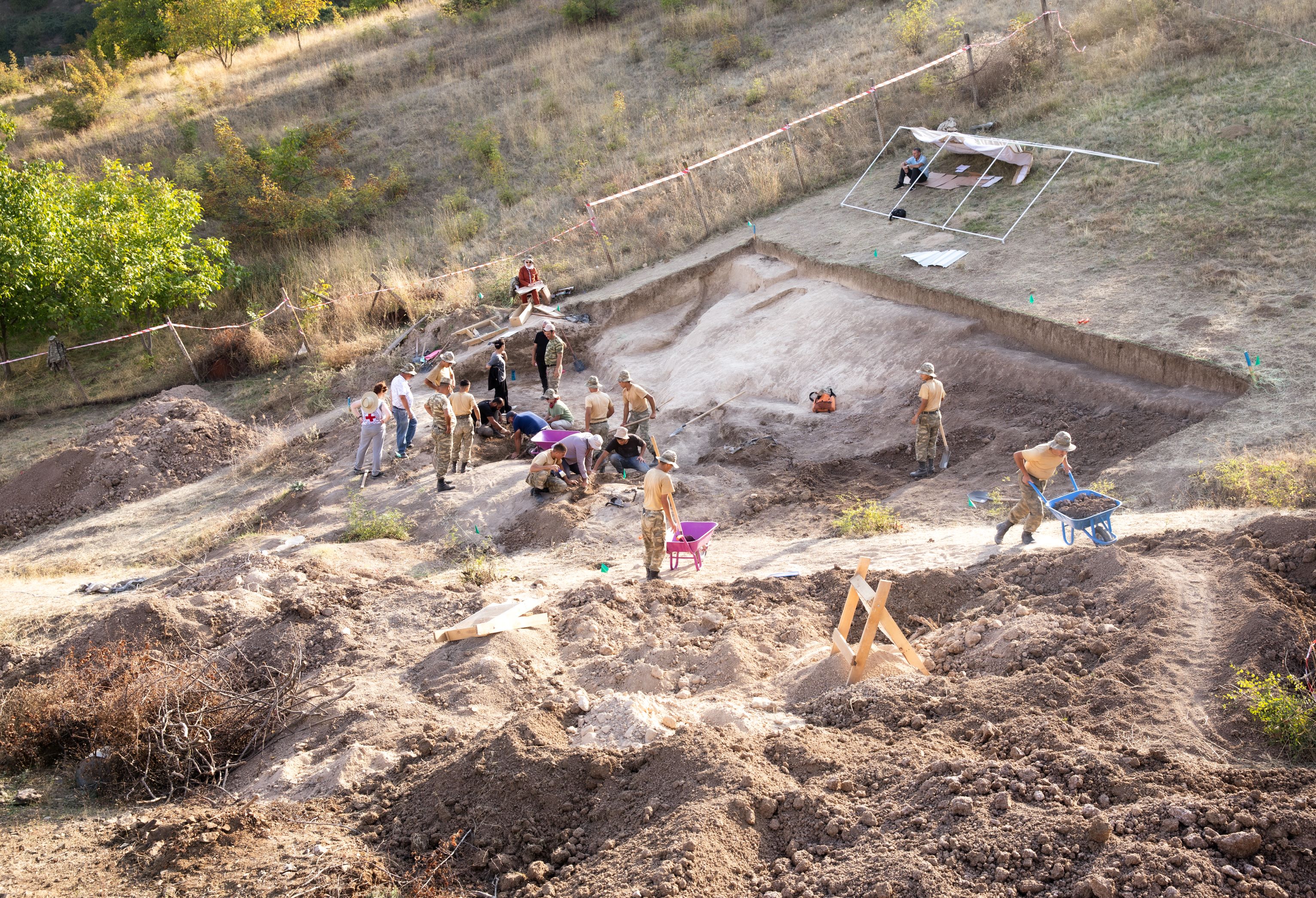Behind every missing person is a family forced to live with uncertainty.
“I cope with my grief by telling myself it’s better to keep my father in my warm heart than in a cold grave.” Elnara, daughter of a missing person, Karabakh conflict of the 1990s
Many have faced not just emotional trauma, but also economic hardship, legal barriers and social isolation. In the 2000s, the ICRC conducted a nationwide assessment to better understand these complex and lasting needs. What followed was a long-term, community-driven response that reached deeply into the lives of those affected.
From 2012 to 2018, the ICRC implemented an Accompaniment Programme to support families of missing persons with psychosocial care, legal guidance and practical help. Some family members of the missing, accepted to play the role of accompaniers to other families. The accompaniers were then trained to provide emotional support to others, facilitate peer group sessions, connect families with services and organize remembrance events. More than 3,000 home visits were carried out during this period and thousands more found comfort through shared community experiences.
After 2018, while the structured programme was scaled down, the ICRC continued to support the dedicated group of 30 trained accompaniers who remained active in the field. During this transitional phase:
- more than 1,000 families of missing people received home visits and psychosocial or psychological support
- over 50 refresher training and supervision sessions were organized to help accompaniers maintain motivation and strengthen their skills, particularly in supporting families through specific moments such as during identification and commemoration
- the network remained responsive in times of crisis – mobilized during military escalations and the COVID-19 pandemic, when more than 500 vulnerable families received emergency cash assistance and monthly phone support replaced in-person visits.

Following the 2020 autumn hostilities, the context changed drastically. Regaining control of the territories of possible gravesites allowed the Azerbaijani authorities to conduct exhumations, search and recovery as well as identifications. Following handover of mortal remains to the families they belong to, created special moments: With each notification, families increasingly turned to accompaniers and the ICRC for support – mainly psychological. In response, additional training sessions were provided to equip accompaniers with tools to guide families through these deeply sensitive processes.
Identifying this new need of families of missing persons, the ICRC launched a new stage of the Accompaniment Programme in June 2022. The thirty accompaniers joined over 10 specialized training workshops, delivered by the ICRC’s teams, focusing on improving their ability to support families during significant moments.
Since the launch of the new stage of accompaniment program, accompaniers have reconnected with over 3,000 families across Azerbaijan, carrying out more than 700 home visits and organizing commemoration events that brought together over 2,000 relatives of the missing. Their work offered not only emotional support but also a powerful affirmation that these families, and their grief, are not forgotten.
The spirit of solidarity extended beyond borders. Families of the missing from Azerbaijan participated in two international conferences along to more than 100 missing relatives, joining the global event from Baku. These participations allowed to share experiences, exchange knowledge and emphasize the universal nature of their journey.
The role of accompaniers remained vital through it all: a bridge between professional support and lived experience, between sorrow and strength, between loss and community.
We acknowledge Source link for the information.



